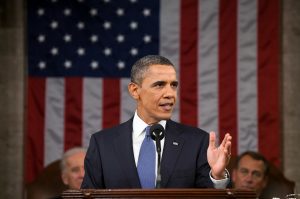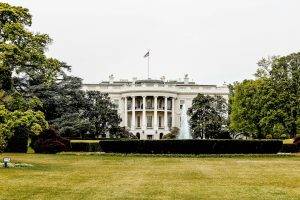[ad_1]

Jiji, 30, is a part of a wave of younger Syrians, largely males, who’ve flocked to the United Arab Emirates from Syria over the previous seven months, after the Gulf nation eased restrictions on Syrian vacationer visas because it normalizes relations with the federal government of President Bashar al-Assad.
The clearest signal of warming ties occurred final month, when Sheikh Mohammed bin Rashid al-Maktoum, Dubai’s ruler, hosted Assad on his first to an Arab nation since Syria’s civil warfare broke out in 2011. The go to elicited outrage from the Syrian authorities’s opponents, representing a crack of their worldwide marketing campaign to make sure Assad’s Syria stays a pariah state.
However for the thousands and thousands of unusual individuals residing in Assad-controlled areas, the president’s go to to the UAE represented a horizon of kinds, elevating hopes for an finish to their lengthy isolation in addition to escape from Syria, the place optimism, jobs and requirements, from electrical energy to operating water, are in brief provide.
The UAE, alongside different regional and western states, backed Assad’s opponents for years. However the Gulf nation signaled a shift in its engagement with Assad in late 2018, when it reopened its diplomatic mission in Damascus. Then-International Minister Anwar Gargash framed the choice to reopen the embassy as a step towards ending the nation’s civil battle as he emphasised the significance of preserving a “united, succesful, Arab Syria.”
The UAE’s swing, together with the softening stances on Syria by a few of the Gulf state’s allies, has set off a debate over the efficacy and morality of normalizing relations with a authorities that has perpetrated mass human rights abuses. On the middle of the dialogue are arguments about one of the simplest ways to finish Syria’s lengthy civil warfare, and whether or not the nation’s isolation — enforced partially by crippling western sanctions — furthers that aim.
Misplaced within the debate, although, are unusual Syrians in search of reduction. In interviews, Syrians who had relocated to the UAE described a grinding life again residence, targeted on survival and little else.
“We will by no means catch up,” stated Ammar al-Rajjal 23, who arrived within the UAE a couple of weeks in the past. He’s pursuing graduate work and is hopeful he’ll discover a job in highway engineering, his chosen discipline — achievements that might have not possible earlier than he moved.
“I believe we’ve misplaced Syria,” he stated.
After arriving in Dubai, Jiji, who had labored in eating places in Syria, discovered work as a waiter at an eatery run by a star Syrian chef. Now, each morning, he calls his greatest good friend again residence and tries to persuade him to go away. “It’s a waste so that you can be in Syria,” he says, in lieu of excellent morning or hi there.
Jiji’s pleas have misplaced a few of their urgency recently: After seeing pictures of Assad and the Dubai ruler clasping arms, he was now not apprehensive the UAE will cease granting Syrians visas. The go to, he stated, “exhibits there are relations that was underneath the desk, and are actually over the desk.”
Residing in Syria had felt like being frozen in place and dealing nonstop simply to make ends meet, Jiji stated. He had endured a lot — refusing to go away the northern metropolis of Aleppo, all through the fierce years-long battle for the town between rebels and the federal government. He rejoiced when Assad recaptured the town in 2016.
That was hardly the tip of his nation’s trials, and the previous few years have introduced waves of financial damage.
Throughout Syria, in rebel-held or government-controlled areas, residents have realized to dwell with the shortages, together with cooking fuel and gasoline. Traditionally a breadbasket, the nation is affected by a collapse of wheat manufacturing on account of a mixture of drought and rising costs. The prices of kitchen staples corresponding to tomatoes, cucumbers and lemons have practically doubled within the final two weeks.
Jiji stated surviving what he referred to as an “financial warfare” — a reference to western sanctions — was too troublesome. He began taking inventory of his life: On his modest wage, he couldn’t purchase a automobile, a brand new cellphone or a birthday reward for himself. Even when he had cash, nervousness concerning the future stayed his hand.
“You couldn’t spend like that in Syria, out of concern of there being one thing worse but to return,” he stated.
Hassan Dayoub, 27, stayed in Syria to show some extent: that there are nonetheless hard-working, curious minds who remained. Dayoub, who had studied management methods engineering, arrange a man-made intelligence membership and in 2018 was invited to a coaching in Lebanon — a visit that supplied his first glimpse of how far Syria had fallen behind.
He arrived a day late to the coaching, after struggling to cobble collectively the $2,000 in money that border guards require Syrians to have earlier than they’ll go away the nation. When he arrived, it felt “as if I went to a different planet, however one which’s useful.”
Dayoub returned residence energized. He launched an augmented actuality start-up, partnering with a Syrian college to assist dentistry college students be taught utilized expertise.
However the prospects for his fledgling know-how issues in Syria had been restricted. Dayoub, like many Syrians, didn’t have a checking account. The Web is famously unreliable. On-line funds are troublesome due to the sanctions. “In Syria,” he stated, “you promote apps the identical method you promote a pair of footwear: come, decide up, give me money.”
He questioned the necessity for sanctions that have an effect on unusual residents — for instance, the barring of entry in Syria to Coursera, the U.S.-based on-line course supplier. How did that assist anybody, he requested.
Now, he works 12-to-14-hour days on his start-up in a Dubai incubator. He stated he believes Assad’s go to had supplied Syrians a glimmer of hope however was not sure whether or not to be optimistic. “There’s no reply,” he stated, as a result of relating to Syria, “all the pieces is guesswork.”
Rajjal left Syria after highschool, transferring to Malaysia, one of many few international locations that doesn’t require Syrians to get a visa. The 23-year-old returned to Damascus in 2019 due to residency points to an unrecognizable metropolis. “Electrical energy, water, gasoline, gasoline, diesel, all of this stuff that are fundamentals, all of those are now not out there,” he stated.
He traveled to Dubai final month, a spot that felt like the long run. WiFi is out there in most locations. Public seashores have solar energy charging stations.
Rajjal visited the Dubai Expo 2020, staged on a sprawling web site that hosted pavilions from 192 international locations. Syria’s pavilion was lined with outsized sculptures of wheat: as soon as the nation’s proud crop, now a logo of its former glory, due to warfare.
“My downside with Syria is that you just really feel like we’re nonetheless residing previously. Everybody says, ‘We was’ and ‘We had good issues’ and ‘We had life,’ ” he stated.
“Now, our technology, what have we finished? What do we have now? We’ve nothing to talk of,” he stated.
[ad_2]










Leave a Reply